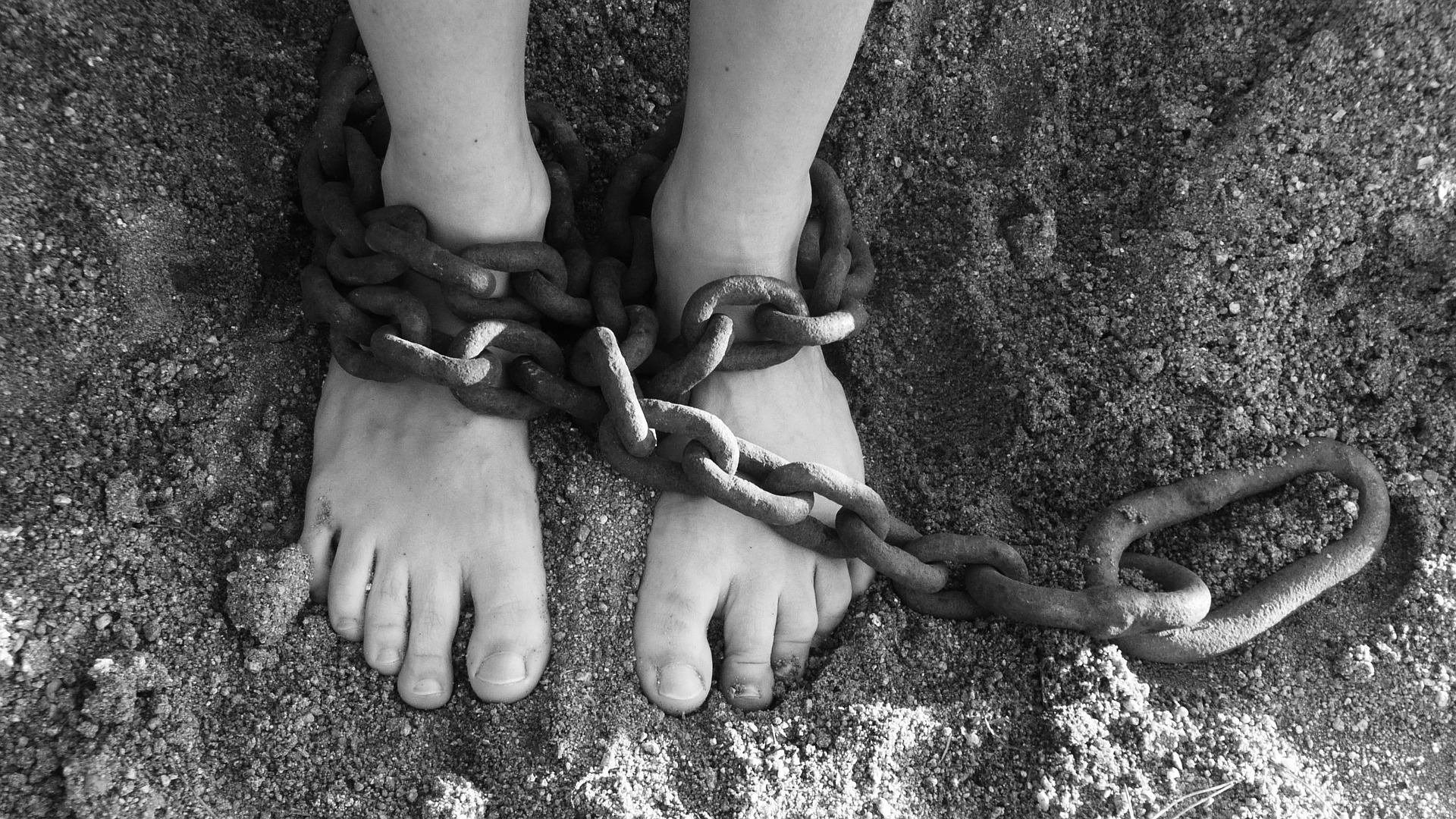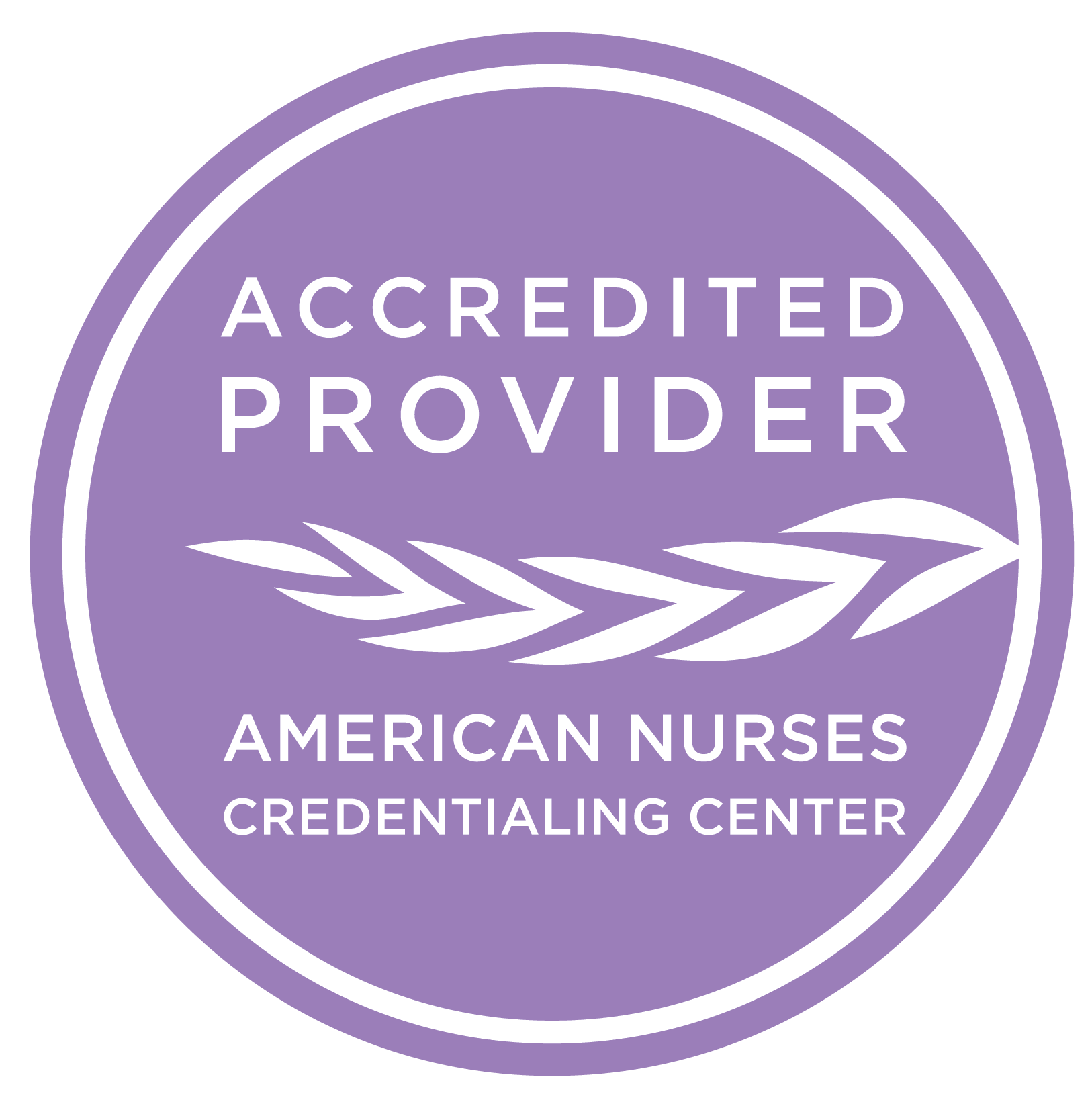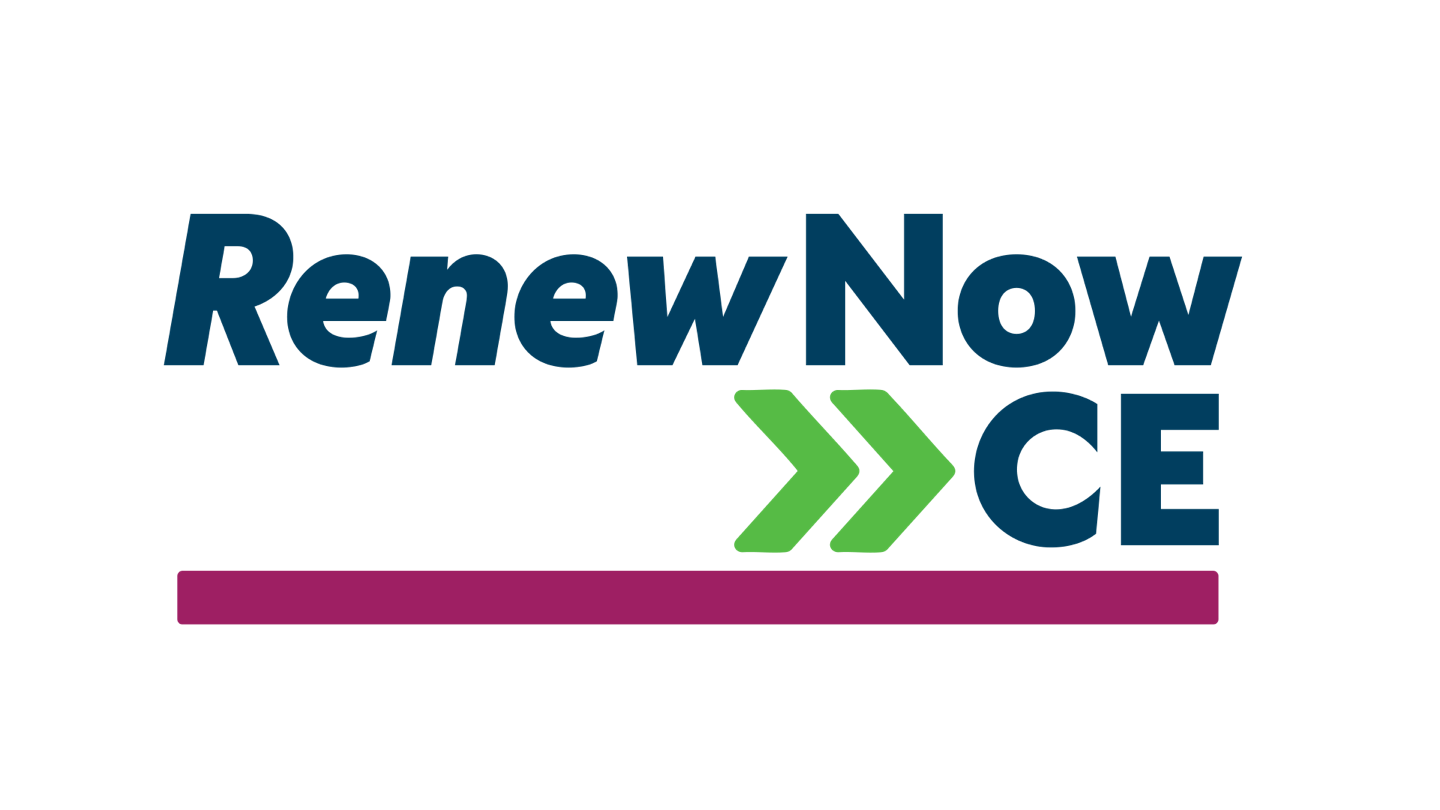Human Trafficking

About the course
Human Trafficking Training - 2 Hours
✓ One-Time Michigan Requirement for All Healthcare Professionals
ANCC Accredited • LARA Compliant • Meets MCL 333.16148

Renew Now CE is an accredited provider through the American Nurse Credentialing Center's Commission on Accreditation (ANCC) (Provider P0557)
Renew Now CE is an approved provider of CE by both the Michigan Board of Nursing and Pharmacy 50-18921

CE Broker Guarantee: For mandated states, we report your completion to CE Broker within 24 hours of course completion
About This Course
Human trafficking is a serious and growing public health concern, and healthcare professionals play a critical role in identifying and responding to victims. This 2-hour continuing education course provides essential training for healthcare providers to recognize the signs of human trafficking, understand their responsibilities for reporting, and support victims with appropriate interventions.
Through real-world case studies and expert insights, this course equips you with the knowledge to identify trafficking victims who may present in healthcare settings, understand the legal and ethical responsibilities of healthcare providers, and provide trauma-informed care that supports victim safety and recovery.
🎯 Michigan LARA Requirement
Michigan Public Health Code (MCL 333.16148) requires all healthcare professionals to complete human trafficking identification training that meets Administrative Rule 338.10105 standards.
✓ One-Time Requirement: This training does not need to be repeated for subsequent license renewals as it's a one time requirement. *Licensed social workers in Michigan should note that, per social work administrative rules (R 338.2961 etc.), at least 2 credit hours of human trafficking training are required in each 3-year renewal period.
✓ 2 Hours Required: This course fulfills the complete Michigan requirement
✓ ANCC Accredited: Nationally recognized accreditation accepted by Michigan LARA
Why Healthcare Professionals Choose This Course:
- One-time requirement - Complete once and you're done for your entire career
- ANCC accredited - 2.0 contact hours recognized by Michigan LARA
- Counts toward CE requirements - Can apply to your total CME/CEU hours if accepted by your board
- 100% online - Complete at your own pace on any device
- Instant certificate - Download immediately upon completion
- Real-world application - Practical strategies for identifying and helping victims
- All professions welcome - Meets requirement for nurses, physicians, pharmacists, therapists, and more
What You'll Learn
This comprehensive 2-hour course provides evidence-based training on:
Understanding Human Trafficking
- Different forms of human trafficking (labor and sex trafficking)
- National and Michigan-specific trafficking statistics
- Trafficking dynamics and victim vulnerabilities
- Common misconceptions about trafficking
- Why victims present in healthcare settings
Identifying Trafficking Victims
- Red flags and warning signs in clinical settings
- Physical and behavioral indicators
- Screening questions and assessment techniques
- Documentation considerations for suspected cases
- Differentiating trafficking from other situations
Healthcare Provider Responsibilities
- Legal responsibilities and mandatory reporting requirements
- Michigan-specific reporting procedures
- Ethical considerations in suspected trafficking cases
- Patient safety and confidentiality protocols
- Coordination with law enforcement and social services
Supporting Victims
- Trauma-informed care principles
- Safe and effective victim communication
- Community resources and referral networks
- Creating a safe environment for disclosure
- Follow-up care and advocacy strategies
Learning Objectives
Upon completion of this course, participants will be able to:
- Identify the different forms of human trafficking, including labor trafficking and sex trafficking
- Recognize red flags and warning signs that could indicate a patient is a trafficking victim
- Describe the health care provider's role and legal requirements for reporting suspected trafficking
- Apply trauma-informed care principles when interacting with potential trafficking victims
- Explain Michigan-specific reporting procedures and mandatory reporting requirements under state law
- Identify community resources and referral networks to support trafficking victims
- Implement safe screening and assessment techniques in clinical settings
Frequently Asked Questions
Is human trafficking training required for Michigan healthcare professionals?
Yes. Michigan Public Health Code (MCL 333.16148) requires all healthcare professionals to complete human trafficking identification training. This is a ONE-TIME requirement that does not need to be repeated for subsequent license renewals. The training must be completed before initial licensure or during the first renewal period after the law took effect.
How many hours of human trafficking training do I need for Michigan?
Michigan requires a minimum of 2 hours of human trafficking identification training. This 2-hour ANCC-accredited course meets the complete Michigan requirement under Administrative Rule 338.10105. The training covers identifying victims, understanding trafficking dynamics, and healthcare provider responsibilities including mandatory reporting.
Do I need to take human trafficking training every time I renew my license?
No. Human trafficking training is a ONE-TIME requirement in Michigan. Once you complete the training, you do not need to repeat it for subsequent license renewals. This differs from implicit bias training (for physicians and certain professions), which is required every renewal cycle.
✓ Complete once and you're done for your entire career in Michigan. Keep your certificate for documentation purposes.
Which Michigan healthcare professionals need human trafficking training?
All Michigan healthcare professionals licensed under the Public Health Code must complete human trafficking training. This includes:
- Nurses (RNs, LPNs)
- Physicians (MDs, DOs)
- Pharmacists
- Physical Therapists
- Occupational Therapists
- Social Workers
- Audiologists
- Marriage and Family Therapists
- Respiratory Therapists
- Physician Assistants
- Nurse Practitioners
- Many other health professions
See the complete list of professions here (Michigan LARA PDF)
Does human trafficking training count toward my CME hours?
Yes. This 2-hour ANCC-accredited course provides continuing education credits that can count toward your total CME/CEU requirements if your profession accepts ANCC credits. For nurses, this provides 2.0 ANCC contact hours. For physicians, it may count as Category 1 CME credit depending on your board's ANCC credit acceptance policies. Always verify with your specific licensing board.
Do I need to submit my human trafficking certificate to Michigan LARA?
No. You do not need to submit your human trafficking training certificate at the time of license application or renewal. During the licensing process, you will attest to completing the required training. However, you should keep your certificate for at least 4 years in case of random audit by Michigan LARA.
⚠️ Keep for audit: Renew Now CE maintains your completion records, but we recommend downloading and storing your certificate immediately upon completion.
When do I need to complete human trafficking training?
If you obtained your Michigan healthcare license after the requirement took effect, you must complete human trafficking training before initial licensure or during your first renewal period. If you were already licensed when the requirement became effective, complete it during your next renewal. Since this is a one-time requirement, there's flexibility in timing - but don't delay, as it's required for license renewal if you haven't completed it yet.
Can I take human trafficking training online?
Yes. Michigan accepts online human trafficking training that meets the requirements of Administrative Rule 338.10105. This ANCC-accredited online course is fully compliant with Michigan LARA requirements and can be completed entirely online at your convenience. The course is mobile-friendly, allows you to save your progress, and provides an instant certificate upon completion.
Course Overview
Course Duration: 2.0 Hours
Format: Online, self-paced, asynchronous
CE Credit: 2.0 ANCC Contact Hours
Accreditation: ANCC accredited (American Nurses Credentialing Center)
Course Original Release: 6/1/2024
Most Recent Review: 5/30/2024
Course Expiration: 5/31/2027
Michigan Requirement: Meets MCL 333.16148 and Administrative Rule 338.10105
Eligible Healthcare Professions
This ANCC-accredited course meets Michigan's one-time human trafficking training requirement for all health professionals, including:
- Nurses (RN, LPN)
- Physicians (MD, DO)
- Pharmacists*
- Physical Therapists
- Occupational Therapists
- Social Workers
- Audiologists
- Marriage & Family Therapists
- Respiratory Therapists
- Physician Assistants
- Nurse Practitioners
- Optometrists
- Counselors
- Psychologists
- And many more
*Note for Pharmacists: This course satisfies the Michigan requirement only and will not report to NABP. Pharmacists should verify their specific board's CE reporting requirements.
View the complete list of eligible professions (Michigan LARA)
Course Features
Money-Back Guarantee
Risk-free satisfaction
Mobile Ready
Learn on any device
Save Your Progress
Complete at your pace
Instant Certificate
Download immediately
LARA Compliant
Meets all MI requirements
4.7/5 Star Rating
Trusted by thousands
Why Human Trafficking Training Matters
Healthcare settings are often the only point of contact trafficking victims have with professionals outside their traffickers' control. Emergency departments, clinics, and routine care visits present critical opportunities for identification and intervention.
Healthcare Contact Statistics:
- 87.8% of trafficking victims report healthcare contact during exploitation
- 68% visited emergency departments or urgent care
- Most interactions occur without identification
Your Impact as a Provider:
- Early identification saves lives
- Proper response ensures victim safety
- Trauma-informed care supports recovery
This training equips you to recognize these opportunities and respond effectively. You'll learn to identify subtle indicators, ask appropriate screening questions, and connect victims with resources while maintaining their safety and autonomy.
What Healthcare Professionals Are Saying
- Nationally accredited and State Board-compliant - ANCC accreditation recognized by Michigan LARA
- Up-to-date and peer-reviewed by healthcare experts - Content reviewed 5/30/2024
- Presented on an easy-to-use online platform - Intuitive interface with progress tracking
- Average course rating: 4.7/5 stars - Trusted by thousands of Michigan healthcare professionals
- Efficient and effective license renewal - Complete your one-time requirement quickly
- Relevant content for real-world application - Practical strategies you can implement immediately
⚠️ Important Reminders
- One-Time Only: You do NOT need to repeat this training for subsequent license renewals
- Keep Your Certificate: Download and store your certificate for at least 4 years for potential audit
- No Submission Required: You attest to completion during license renewal - you don't submit the certificate
- Different from Implicit Bias: Human trafficking = one-time; implicit bias = every renewal (for applicable professions)
- Required for All Professions: This applies to all Michigan health professionals under the Public Health Code
Need Help?
If you have questions about Michigan healthcare license requirements, course content, or technical issues, our support team is here to help.
Official Michigan Resources
Always verify current requirements with official Michigan sources:
- Michigan LARA: michigan.gov/lara - Licensing and Regulatory Affairs
- Human Trafficking Requirements: Complete List of Professions (PDF)
- Michigan Public Health Code: MCL 333.16148 - Legal requirement
- Administrative Rule: Rule 338.10105 - Training standards
- License Verification: Verify Your License - Check your status
Michigan healthcare license requirements subject to change. Always verify current requirements with Michigan LARA and your specific licensing board. This course meets the human trafficking training requirement as of June 2024. For the most current information, visit michigan.gov/lara.
This course includes
- Money back guarantee
- Certificate of completion
- Mobile ready
- Course save progress

